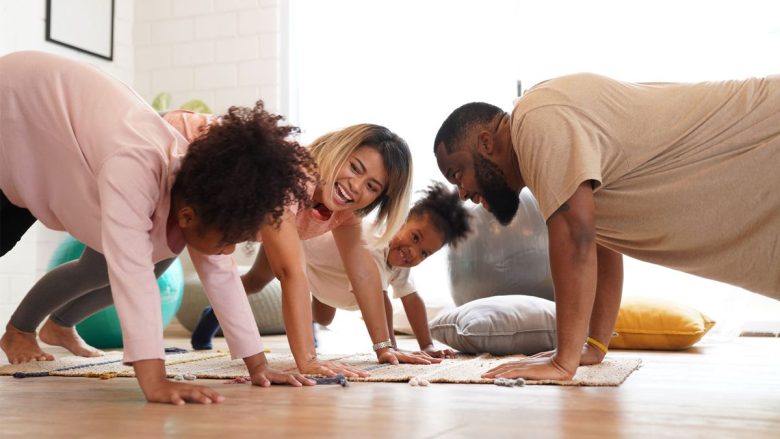People often think that exercise is just an extra thing for losing weight or building muscle, but in reality, it has a much greater impact on our health and well-being. Exercise is a natural human need. Regular exercise helps your body function better and also makes you feel better mentally and emotionally. Exercise isn’t just about how you look; it’s also about how you feel, your energy, and how your body can better support you in performing daily tasks.
Health Benefits of Regular Exercise
Regular exercise has many health benefits. It strengthens bones and muscles, keeps joints flexible, and improves posture, all of which can reduce the risk of injuries and diseases associated with aging. Regular exercise is also beneficial for heart health, as it improves circulation and keeps the heart strong. Exercise can reduce the risk of chronic conditions such as diabetes, high blood pressure, and obesity. Even small daily activities like walking or stretching can help you stay healthy. This data shows that exercise doesn’t have to be difficult; it can even be beneficial.
Exercise as a Natural Energy Booster
Many people feel tired or exhausted during the day and turn to caffeine or sweets for a quick energy boost. But exercise is a natural and long-lasting way to increase your energy levels. When you exercise, your blood circulation improves, allowing your cells to absorb more oxygen and nutrients, making you feel more energized. Exercise also triggers the production of endorphins in your brain, chemicals that make you feel positive, alert, and energized. This is why people who exercise daily are more energetic and productive than those who don’t.
The Link Between Exercise and Mental Health
Exercise has a significant impact on both your physical and mental health. Research shows that regular physical activity activates brain chemicals that promote a sense of well-being and calm, alleviating symptoms of stress, anxiety, and depression. Exercise can serve as therapy because it helps you process emotions healthily and clear your mind. Moderate hobbies like yoga, dancing, or cycling can significantly improve your emotional well-being by reducing stress hormones and making you feel calmer. By exercising daily, you can improve both your physical and mental health.
Exercise and Better Sleep
Exercise directly impacts your sleep quality, which is an important factor in maintaining excellent health. Exercise helps regulate your body’s internal clock (circadian rhythm), making it work more efficiently and making it easier to fall asleep and sleep through the night. People who exercise regularly generally sleep better and more deeply, leading to more energy during the day, better focus, and a better mood. Even something as simple as an evening walk or some stretching can help you relax and prepare for a good night’s sleep.
The Social and Emotional Benefits of Exercise
Health encompasses not only physical and mental well-being but also social well-being. Exercise is a wonderful way to meet new people. Exercising in a group, playing a sport, or simply taking a walk with friends can improve your emotional well-being by building social connections. Setting shared goals, encouraging each other, and celebrating achievements all contribute to a sense of community and connection. The social aspect of exercise gives you another reason to exercise, making it easier to maintain and enjoy. A healthy mind-body connection contributes to both physical and mental well-being, and exercise often provides that opportunity.
Exercise for a Longer Life and Graceful Aging
One of the benefits of regular exercise is that it can help you live longer. Exercise is crucial for healthy aging because it helps you stay flexible, strong, and balanced. It can reduce the risk of aging-related conditions like osteoporosis and arthritis and keep your mind sharp by pumping blood to the brain. People who stay active well into old age generally have more freedom, energy, and a higher quality of life. Regardless of your age, incorporating some basic exercise into your daily routine can provide health benefits for years to come.
Making Exercise a Sustainable Habit
Exercise is good for you, but many people find it difficult to maintain. The key is to make yoga part of your daily routine, not just something you do occasionally. You don’t have to invest a lot of time or energy. A daily walk, stretching at home, or light strength training can all count. If you choose activities you enjoy, you’re more likely to stick with them long-term. Consistency is more important than intense exercise. Even a small amount of daily movement can have a giant impact on your health and well-being.
Conclusion
Exercise isn’t optional; it’s essential for your daily health and well-being. It affects almost every aspect of life, including physical strength and energy, mental clarity, emotional stability, and long-term health. Incorporating exercise into your daily routine can help your body function better, make you feel better, improve your sleep, and reduce your risk of long-term illness. Exercise can help you live a balanced and joyful life, where health and well-being go hand in hand. No matter your age or health, small steps today can greatly affect your future health.
FAQs
1. Why is daily exercise beneficial for your health?
Exercise is crucial for your overall health because it keeps you fit, reduces your risk of chronic disease, improves your mood, and increases your energy levels.
2. How much exercise do you need each day?
Even 20 to 30 minutes of moderate-intensity exercise, such as brisk walking or light stretching, can have a significant impact on your health.
3. Can exercise really relieve stress and anxiety?
Yes, exercise can reduce stress hormones and increase endorphin production, which can help you relax and feel happier.
4. What kind of exercise is beneficial for your overall health?
A good combination of aerobic exercise, strength training, and flexibility training is beneficial, but even a little daily exercise can be helpful.
5. Have you ever felt like you couldn’t start exercising?
You can start exercising at any time. People of all ages can benefit from exercise. And because the exercises can be tailored to different fitness levels, anyone at any stage of life can start.




